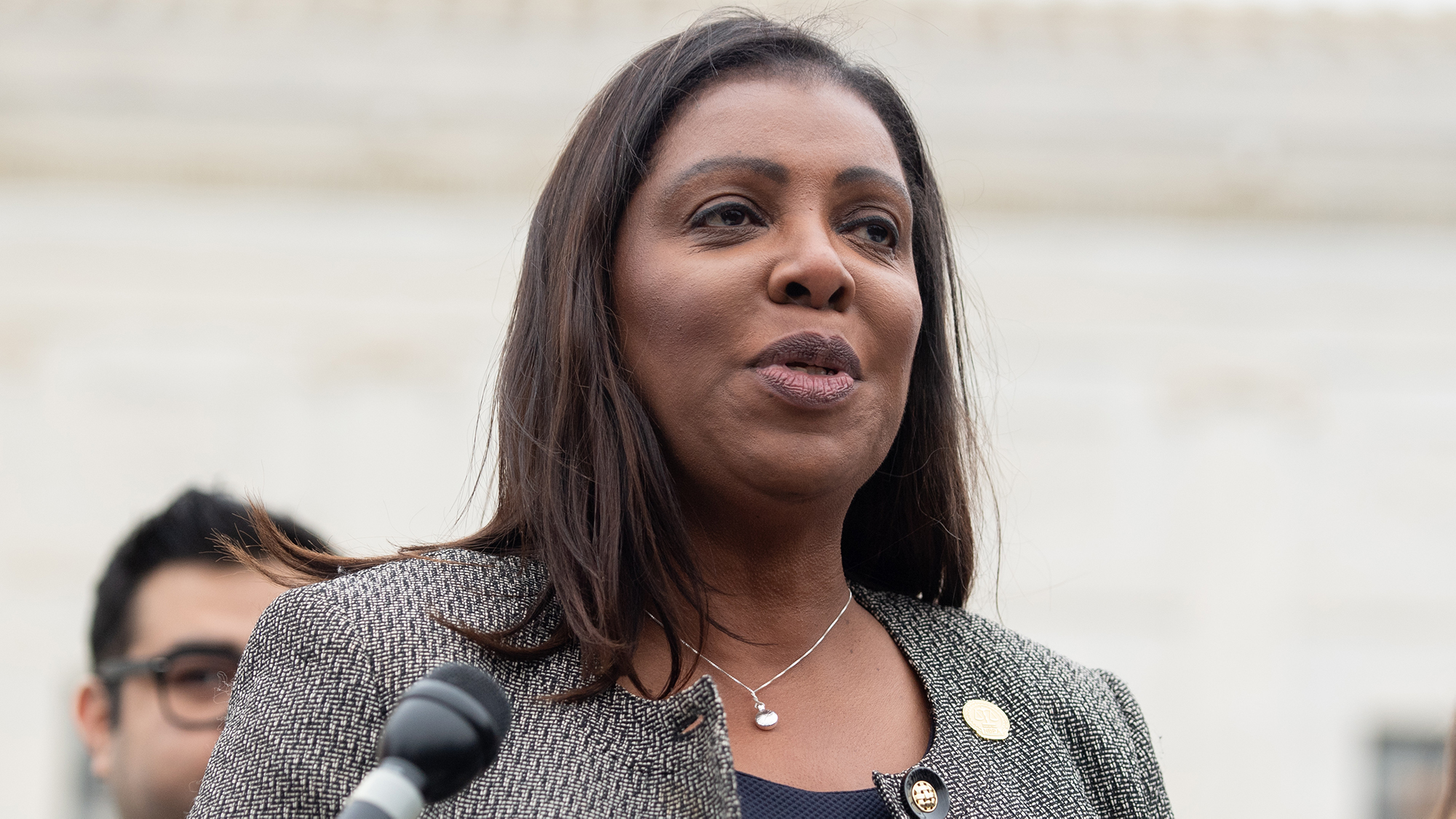More States Sue Google, Charging Antitrust Violations
New York AG Letitia James helps lead latest legal charge

The smarter way to stay on top of the multichannel video marketplace. Sign up below.
You are now subscribed
Your newsletter sign-up was successful
Google is getting hit with the legal equivalent of a swarm as more states join to sue over antitrust concerns.
A day after a Texas Republican Attorney General-led group of almost a dozen GOP state AGs filed suit against Google alleging monopolistic practices. A New York Democrat AG-led group of 38 more, both Democrats and Republicans, filed a similar suit.
New York Attorney General Letitia James said her state was co-leading the legal charge, suing Google for "illegal, anticompetitive conduct that has sought to maintain its monopoly power in the general search services and search advertising markets."
Also Read: Trump Sues Unlawful Monopolist Google
The latest suit alleges multiple antitrust violations and that Google has maintained its Web behemoth status using multiple forms of anticompetitive conduct.
While the Department of Justice also filed suit against Google back in October, James said the new suit goes further that DOJ's, which focused on exclusionary agreements.
Adam Cohen, director of economic policy for Google, responded to the suit in a blog post.
The smarter way to stay on top of the multichannel video marketplace. Sign up below.
The New York et al. suit alleges that anticompetitive conduct comprises 1) exclusionary contracts that limit consumers access to competitors; discriminating against specialized search competitors like Expedia and Yelp, including by depriving them of "prime" Google results page real estate and favoring Google's own specialized search; and 3) rigging its search engine marketing tool SA360 by driving advertiser spending to Google, including by making Bing ads appear to perform worse than they actually do.
Also Read: Trump Sues Facebook
The suit was filed in the U.S. District Court for the District of Columbia along with a motion to consolidate it with the DOJ case. It follows by a week one filed by New York and 47 other AGs against Facebook for "stifling competition to protect its monopoly power."
Also on Thursday, the Justice Department said that three additional states, Michigan, Wisconsin and California, had asked to join 11 other states in its October suit against Google.
“Antitrust laws were designed to prevent consumer harm, and that standard has helped promote innovation," said Matt Schruers, president of computer association CCIA, whose members include Google. "This suit aims to police design choices made that improve Google’s product. Search design has been benefiting from constant redesign and updates, and regulators in the U.S. and abroad have concluded this has improved consumers’ experience. That’s exactly what competition promotes."
“It is great to see a bipartisan coalition of states stand up to Google for abusing its search monopoly,” said Justin Brookman, director of technology policy for Consumer Reports. “For far too long, Google has used its power to harm competition and undermine the digital rights of consumers. It is clear that without intervention, these markets will not become competitive. We hope this lawsuit and others are the start of a much needed and long overdue step up in antitrust enforcement in digital markets."
“Small businesses are hurting, and instead of helping them, these Attorneys General are trying to force middlemen between small businesses and their customers," said Connected Commerce Council President Jake Ward. "In every market, middlemen drive up costs, drive down value and drive small businesses further from their customers. Intervening on behalf of billion-dollar publicly-traded intermediaries insults small businesses and harms consumers. To do so now is nuts."
Contributing editor John Eggerton has been an editor and/or writer on media regulation, legislation and policy for over four decades, including covering the FCC, FTC, Congress, the major media trade associations, and the federal courts. In addition to Multichannel News and Broadcasting + Cable, his work has appeared in Radio World, TV Technology, TV Fax, This Week in Consumer Electronics, Variety and the Encyclopedia Britannica.

